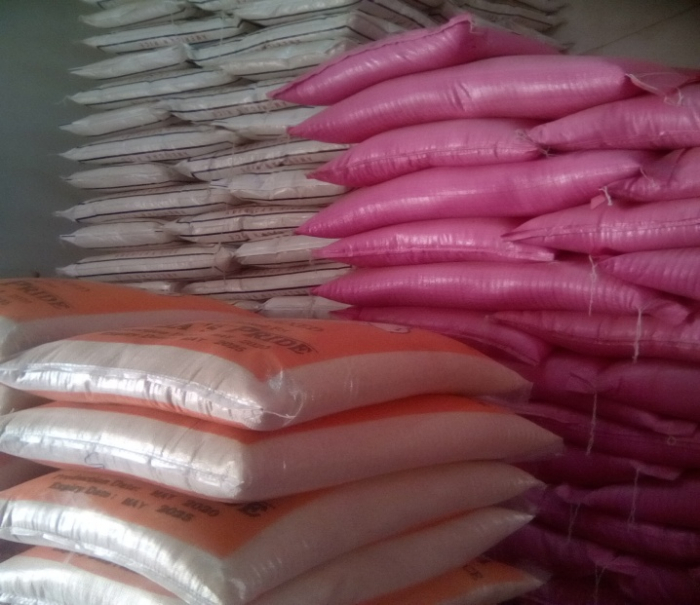
In 2019 a 50kg bag of American rice was sold in The Gambia at D1150. In 2020 the price increased to D1250. While in late January 2021, the price jumped to D1300.
In 2020 a 50kg bag of Sadam rice was also sold at 1550. It later increased to D1600 and subsequently, it increased to 1650. However, currently, a 50kg bag of Sadam rice is sold at D1750 in The Gambian market – a situation that is alarming.
Speaking to The Point in an exclusive interview recently, Dawda Sey, a resident and a family head at Darsilami village in the Kombo Central District, West Coast Region (WCR), complained bitterly of the hike in the price of rice, saying a bag of rice is too expensive in the country compared to previous years.
In 2018 President Barrow-led government announced a free trade for rice importers. This policy ensures free duties on rice traders. And in his campaign, he repeatedly promised that if he was elected to the Office of the President, a bag of rice would be sold at D700.
However, Mr. Sey said: “Some years ago, the government announced free trade on rice importers but the price often increases. Now where does the problem lies?”
He argued that there is a need for the Barrow government to monitor the market because the price of commodities is escalating swiftly.
Speaking to this reporter at the Serekunda Market while shopping, Isatou Kebbeh, a housewife said: “Rice is very expensive in the market because a cup of American rice costs D7 and a cup of Sadam rice costs D14.”
Complaining bitterly while holding her shopping basket, she said the price of rice is now very high in The Gambia compared to 2019 and early 2020 when a cup of American was sold at five dalasis (D5) while the Sadam rice was sold at six dalasi (D6).
Speaking further, she said the high price of rice has severely affected her family and some poor people in the country. She said many ordinary Gambians only manage to sustain their families but they find it difficult to satisfy their families.
Fatou Bayo, a petty vendor at the Serekunda Market, also talked about hike in price of rice. She said the price hike is affecting the ordinary Gambians daily as many do not have the financial capacity to purchase enough rice for their families to eat to satisfaction.
“We (consumers) really want to know the cause of the frequent rise of price in the market. And the government should come forward to updating us the cause of the price hike in the country,” she argued belligerently to this medium.
Some business analysts have said the hike in prices emanated from the international level [rice producers and suppliers].
However, Madam Bayo has a different view. She said business people just adjust the price for their selfishness.
The petty vendor called on government to urgently put a mechanism in place to bring down the price of rice in order to save the average Gambians.
Fallou Sarr, a shopkeeper, said prices of all commodities in the country have greatly increased, adding they often increase on daily basis.
“I used to sell a cup of American rice at D6 and a cup of Sadam’s rice at D8, but now I sell a cup of the American rice at D7 and the Sadam’s rice at D10. I increased because recently I went to my supplier and found that he had increased a bag of American rice from D1250 to D1300 and Sadam rice from D16 50 to 1750,” he explained.
The shopkeeper said the hike in price of rice affected the shopkeepers than others, justifying that their suppliers never compromised with price. “He (our supplier) will tell us to buy or leave his shop but will never make a discount,” he added.
“I often get profit from other goods but I am not getting profit in the rice. I just sell it to ensure my customers buy alongside other goods from me.”
Sarr said whenever the price increases, his customers often complained, thinking that he was deliberately increasing the price. However, he added that he always made them understand the hike price is from the upper level.
He further said there is a need for government and rice importers to exercise mercy on the consumers and put measures in place to reduce the price of rice to favour the average Gambian.
Binta Bah, restaurant owner also joined others on the grumble, saying “I am just selling food because my children often eat in the restaurant but not for sake of getting profit from my sales.”
“I am not profiting from this business owing to the high cost of rice.”
Bah argued that there is a need for authorities to urgently look into the matter as the price of rice has drastically increased monthly.
Muhammed Hydara, a wholesaler at the Serekunda Market said the hike in price of rice did not affect the consumers and petty traders alone, noting even himself as a wholesaler is severely affected by the increment in the price of rice.
“If the price of commodities such as rice increases, it would reduce my customers because many would think the fault is from me. So, they would go to other business people searching for cheaper prices. That is not good for me and any other business person,” he said.
When asked whether he understands the cause of the hike price, Hydra said he does not have many ideas on that but the cause is at the international level. “So, I will neither blame government nor importers,” he said.
Abbas Akar, director of Gam Food Trading Co. Limited, a main rice importer into The Gambia said there are many factors responsible for the high cost of rice in the country, namely the COVID-19 pandemic that affected the entire world including Asian countries that produce and supply to the world.
“There is a reduction of supply in the producing countries and the demand is higher globally. This causes the high cost of goods internationally,” he explained.
The businessman noted that another factor of the hike price of rice is an increase in the price of freight containers in Pakistan by more than a hundred percent (100%), which he said affected all rice importers.
“Before and early stage of the COVID-19 pandemic, a freight container was $1600 and now it has increased to $3800. This has contributed to the high cost of rice,” he said.
For his part, Hassan M. Jallow, permanent secretary at the Ministry of Trade, Regional Integration and Employment, said the government has made an assessment on the price of goods and realised the hike in prices.
The Trade Ministry he said is working with The Gambia Port Authority (GPA) and shipping line to reduce the cost at the seaport, adding that they would prioritise food items such as rice.
Speaking further, PS Jallow said the government is trying to support business people who have interest in rice importation with access to loans to ensure the country has more rice importers.
He said the government does not have the capacity to provide loans for such business people, but it would guarantee business people who want to take loans from the financial institutions.
This, he said would help to reduce the cost of consumable commodities in the country.





